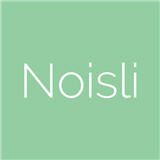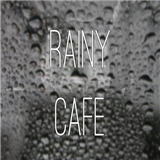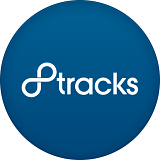Music for Studying from an MBA Perspective
December 15, 2014
“Music is the electrical soil in which the spirit lives, thinks and invents.”
– Ludwig van Beethoven
As the semester comes to an end, final exams conclude the culmination of several intensive, academic weeks. Holiday and summer breaks are so close that it might make it harder to concentrate and focus on the task at hand: studying. While some would argue that the best way to study is in a quiet environment with no distractions, I personally find music a compelling source for motivation.
During my time as an undergraduate student, I had the pleasure to share a dorm room with
Allie McNay
(’11), a Board Certified Music Therapist. Allie is able to share her passion of music and people on a daily basis. I had the opportunity to consult Allie and her expertise in music therapy to better understand the direct benefits of utilizing music while studying for exams:
How does listening to music support cognitive functions?
“Music itself is a complex stimulus, and includes multiple components such as rhythm, melody, volume, and even emotional feeling. Therefore music is processed in many different brain regions simultaneously, which is probably the most important thing about it. It’s like you’re giving your brain a full-body workout, and research in recent years has shown this to be even more effective when you are creating music. That is, singing or playing an instrument has even greater effects for maintaining your neuroplasticity.
For more information, check out this
TedTalk
on music and cognition.”

Does listening to music stimulate learning and enhance concentration? If so, how?
“There is research that supports this idea: listening to music engages the brain in multiple simultaneous ways, priming those brain areas for activity, and therefore heightening attention. However, much of the research associated with education or learning is focused on the effects of classical music in particular. The popular, yet controversial, Mozart Effect is a prime example of music’s effects on learning: specifically, the music composed by Mozart has been shown to increase spatial temporal reasoning. The field of music psychology is still young and further research is needed, but I personally believe (with my experience as a music therapist) that all types of music are applicable—but the effects are dependent on the individual. Each person’s brain has the same basic functions, but because music is also tied to emotions, different types of music can have different effects for different individuals. It may take trial and error to find the most stimulating (yet not too distracting) music for your study session. When studying, I personally prefer classical piano music, or other unfamiliar music, usually without lyrics as I tend to get distracted and sing along to songs that I know.
More information on cognition and music, check out this article on
How Music Can Reach the Silenced Brain
.”
As a music therapist, do you have any suggestions for those looking for music as not only a study outlet, but a relaxation or meditation outlet?
“There is also a great amount of research supporting the effects of music for relaxation and pain management. One of the ideas we use in music therapy for pain management is called the Iso Principle. In using the Iso Principle, the music therapist matches her music playing to the mood and heart rate/breathing of the patient. Once this is achieved the therapist can gradually change the music being played to reduce the patient’s heart rate and/or foster more positive mood. When listening to music for the purpose of relaxation, you can adapt this idea by starting with songs that might reflect your current mood, rather than starting out with a song you think is most calm and relaxing. For meditative purposes, I have also found that music with simpler instrumentation (fewer instruments used), slower tempo, and less dissonant melody/harmony tend to be most effective because this decreases the possibility of overstimulation by complex musical characteristics.”
Do you have any recommendations for what music to listen to at certain stressful (or non-stressful) times?

“Going off of the Iso Principle, starting with something more energizing and upbeat might help you release nervous energy, depending on what your needs might be. Sometimes it is helpful to incorporate physical activity with music to relax: such as a short run, stretching or even dancing around the room. Other times it is helpful to distress by finding a quiet, dark space to do some deep breathing. Music can facilitate the success of both of these situations, but you would probably pick different types of music for each. What will be most effective really comes down to preferred music and each individual’s experience: what might work for one person might cause someone else to become more agitated or stressed out. Finding what type of music works best for you might take some time, but once you can point out a couple of specific songs that really help you calm down, you can search for more songs with similar qualities. I recommend making a playlist of songs that you find most effective, and if you are having trouble finding more like it, try out one of the many music apps that can create a “station” around a song title or artist.”
A general Google search of the phrase “music for studying” will display results to YouTube videos and other websites that have music playlists to suit your focusing needs. Below is a list of music sources to help you pick the best study music for your exam preparation.
 Playlist Therapy
Playlist TherapyAllie McNay curates her own digital mixtapes on her website. Her objectives: to energize and inspire others through the songs she shares. She loves “discovering new and old music alike and fitting songs together into a playlist, like pieces in a puzzle.”

StereoMood
StereoMood is a free music streaming service that helps users tune into music based on their current moods. Aside from radio stations and preset playlists, StereoMood also allows playlist creation and customization.

Coffitivity
Do you like to study in coffee shops? Bring the ambient noise to your study session remotely through Coffitivity, a tool created to help listeners work better. Their cafe library includes playlists of sounds from coffee shops from all around the world.

Noisli
Noisli provides high-quality background noise ideal for working, reading or relieving anxiety. This distraction-free site allows you to select sounds from nature or other soothing environments to create the ideal level of productivity or relaxation.

Rainy Cafe
The Rainy Cafe website states the following quote from a University of Chicago study on creative cognition: “A moderate level of noise enhances creativity. Moderate background noise induces distraction which encourages individuals to think at a higher, abstract level, and consequently exhibit higher creativity.”

Focus @ Will
Focus @ Will believes that mainstream music will lower comprehension levels and cause distractions. Their website and YouTube channel delivers music that enhances brain functions. Focus @ Will uses technology to provide users with music designed to engage the brain’s limbic system.

8tracks
8tracks is internet radio created by people. Explore playlist mixes from a list of music genres or create your own! With over 1 million playlists, 8tracks has a massive library of playlists for studying.
 Pandora
PandoraIn Greek, the name Pandora means “all gifted.” Founded by musicians and music-lovers, Pandora offers a wide range of artists, genres and composers to choose from to create your ideal station.
 Spotify
SpotifySpotify has millions of tracks which can be streamed from a phone, computer or tablet.
Is your favorite music app or website not listed above?
Comment below with your insight on what music you like to listen to while studying.
Photo credit: Donna Foronda ’11
